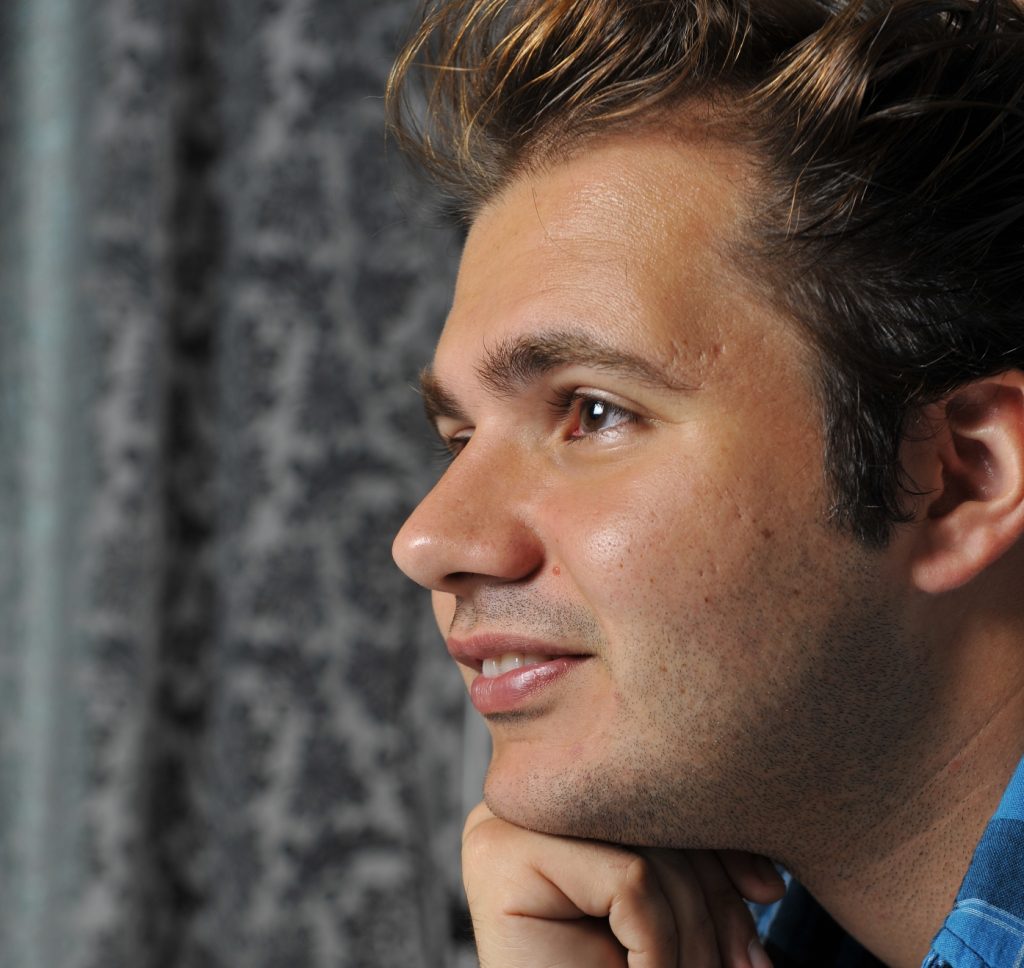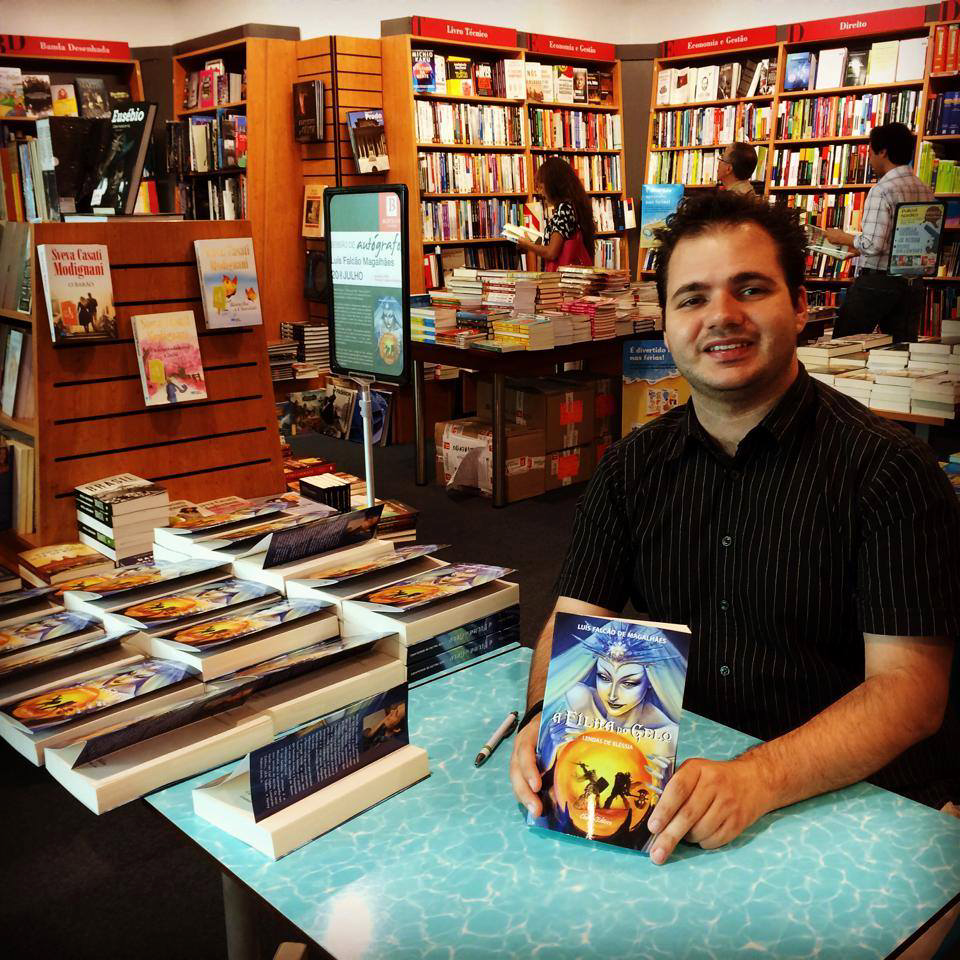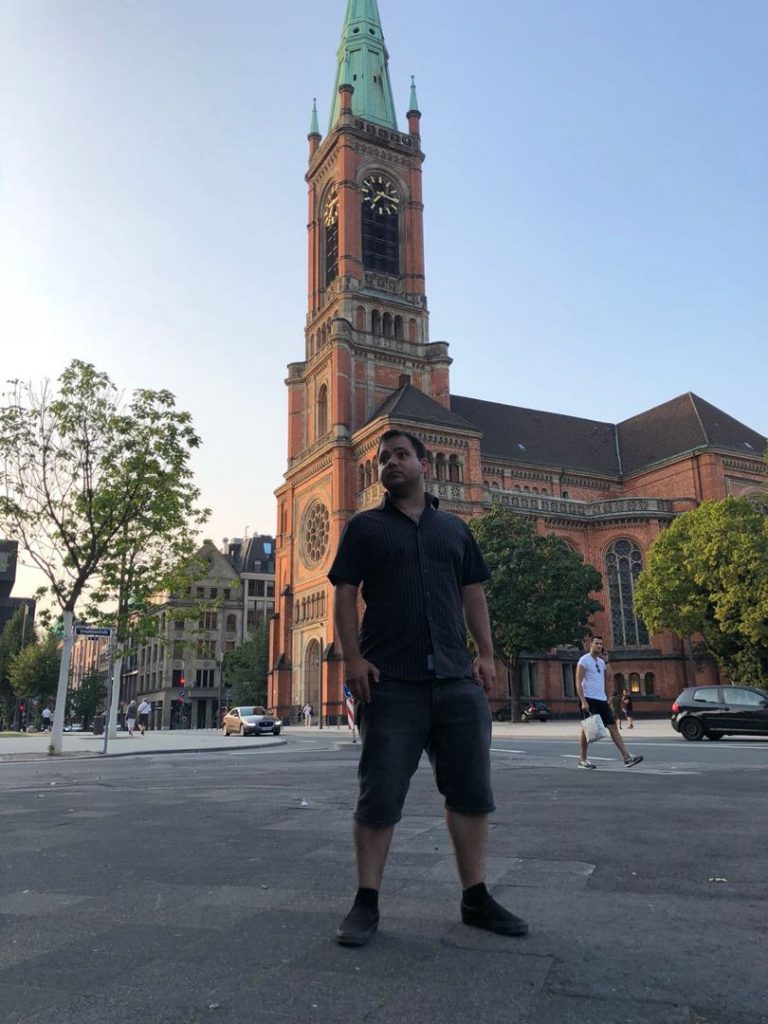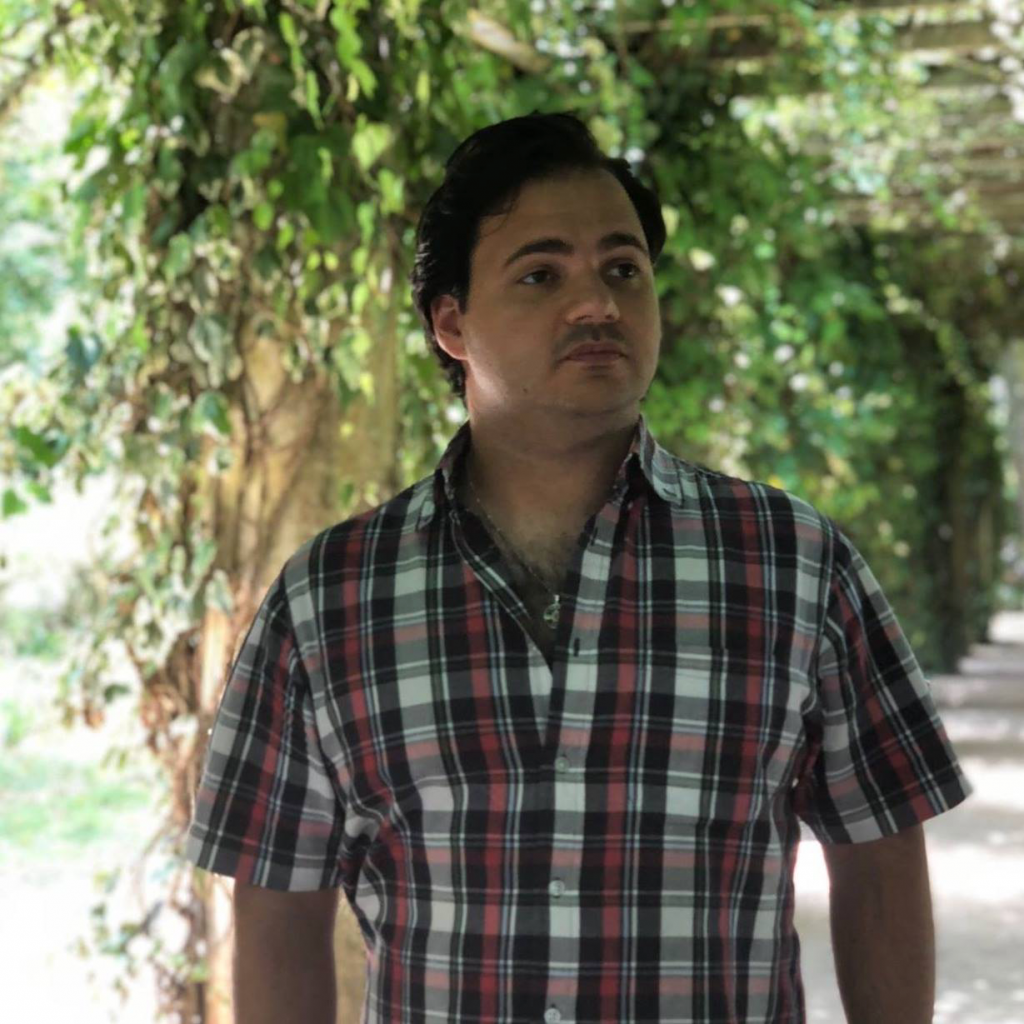1. Hey, can you please introduce yourself?
Hi! I’m Luis Magalhaes. I’ve been managing editorial teams remotely for the past 15 years and training remote teammates to do so for nearly as long. I’m a writer (fiction and personal/professional development), recovering dentist (specialty: surgery), and video game fan. I like to host podcasts about my interests.
2. What motivated you to choose remote working?
A chance encounter with Sharon Koifman, the founder of DistantJob, made me realize that if we could make remote work mainstream, that would be a gamechanger for all the disabled people who are, in one way or another, prevented from crafting their best careers. My fianceé at the time suffered from Multiple Sclerosis, and her brother had developed paraplegia after a bike accident. So I had two very vivid examples in my life of how people who were very good at their jobs didn’t get a real chance to showcase their talent because their conditions made it suboptimal to work at an office.
3. What were your initial months like? Did it live up to your expectations?
It was pretty easy. The internet had been my playground since I was 15 or so; I was used to interacting online, being part of teams in MMOs, bulletin boards, shared blogs, etc. It was wonderful to have my work life become like that. “Never say never,” and all that, but I can’t imagine myself wanting to go back.

4. How did you find remote working roles?
I created them! I worked as a freelancer, scanning over job board after job board and applying for gigs that seemed like a good time investment. Once I found a client that was a pleasure to work for, I focused on over-delivering. At worst, I would build a good reputation; at best, I could get a job offer if they ever decided to bring my role in-house. Eventually, it happened.

5. What have been the best, good and worst aspects of remote working for you?
The best has been the ability to organize my workday to lead to better focus and increased productivity. I can optimize for creative work during my power hours while limiting interruptions and then handle managerial tasks during low energy slumps.
The good is the decrease in social interaction. As an introvert, being surrounded by people all the time becomes exhausting. Working remotely, I can let people know I won’t be available for some hours and close Slack while I do my best work.
The worst is the extra time and effort I need to put into communicating – and understanding that many people won’t be putting in the same time and effort. Without high-definition, full-body audio-visual cues, most people engage in mind-reading and expect you to do the same accurately. It is, of course, a fool’s errand, but that’s how humans are wired. We expect to get away with writing gibberish in chat, and if someone doesn’t get it, that’s on them. It’s hard work getting past this mindset and even harder to get the people who work with you to get past it as well.

6. What tools do you swear by while working remotely?
Trello and Basecamp. They are equally excellent at creating a virtual space for your team to interact and show their work. Which one is best for you is a matter of preference – visually-oriented people prefer Trello’s Kanban-like workflow and threaded conversations. At the same time, checklist enthusiasts will swear by Basecamp’s structure. I like Trello to set up editorial workflows, but Basecamp is better for outlining complex, multi-step projects and having access to single-source-of-truth documentation.
7. Your most exciting/ hilarious experience since you started working remotely.
The best thing about my work has been learning from people leading the pack in remote leadership. In the DistantJob Podcast, I’ve spoken with over 140 experts ranging from fully remote companies like Buffer to remote-adjacent companies like Microsoft, and each of them had something fantastic to contribute. When you work online, the best experts in the world are one click away – you just need to know how to approach them.
8. What is your golden advice to a new remote worker?
Show your work. Start your day off by letting your team and manager know what you will be working on and what you expect to accomplish by the day’s end; then report back once you are done for the day and be honest about how you measured up to your plans.

9. How do you see your career shaping up and your goals?
Let me start by answering about my goal: I want every job that can be done remotely to be done remotely. When this happens, it will level the social, political, and economic playing fields worldwide. Money will stop being pooled geographically and instead flow to the best talent from all around the world, enriching their communities. The cost of living in rich countries will go down. The income in developing countries will go up.
Wealth redistribution is a nasty concept for many because, so far, the philosophies that advocated for it also advocated for policies that enforced it. No one likes to be told to do anything, and no one wants to think they need to give up their stuff to achieve some vague utopic goal. But with a truly global workforce, redistribution will happen naturally and voluntarily because talent is evenly distributed across countries, and wealth will flow to where talent is.
I believe that my career will sort itself out if I can make the world a better place.
10. How do you expect remote working to evolve in the future?
I think that we will get better at it, and we will also make peace with the fact that it’s “different strokes for different folks.” Right now, the discussion is between the people who say Remote Work is the One Solution, and people on the opposite side, saying that creativity is something that only happens at the office and that most people don’t have the discipline to self-motivate while working from home.
The unsexy reality is that all of that is true. Some people will thrive working from home, and others will need the office. And some people will want the flexibility to alternate. The challenge companies need to solve is to decide where they stand while understanding that whatever option they take, they will be sacrificing their ability to entice part of the workforce.
Decisions are about trade-offs, and when it comes to Remote Work VS Office Work, there’s a whole spectrum of decisions, with a full gamut of benefits and challenges.
11. Where can we follow you on?
Go to www.thinkremote.com , and follow me on LinkedIn at https://www.linkedin.com/in/luismagalhaes/